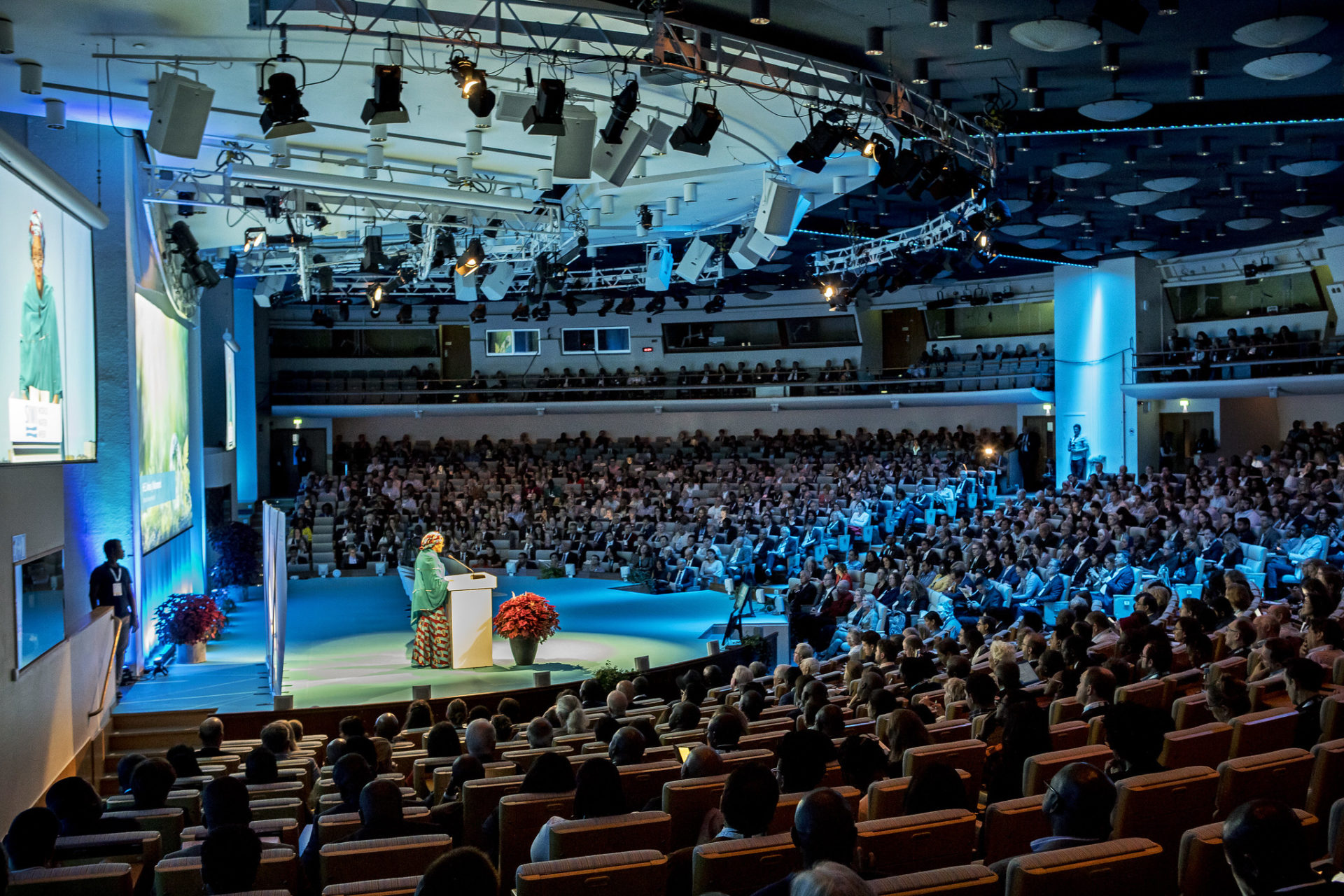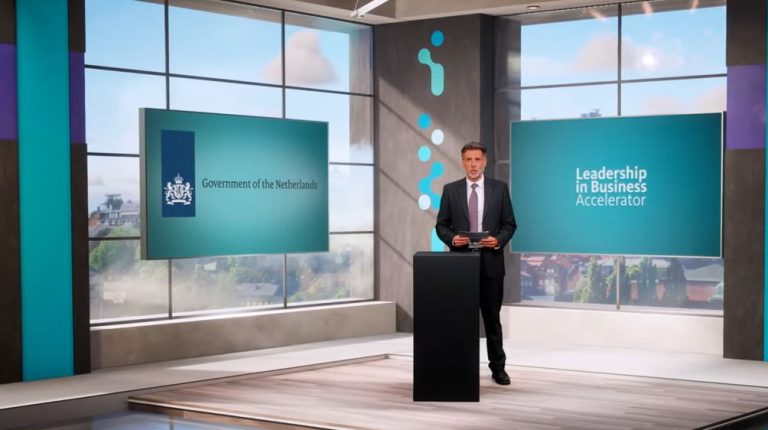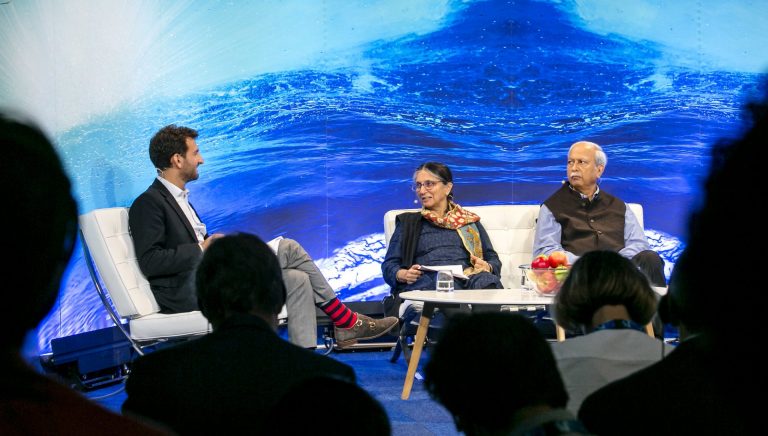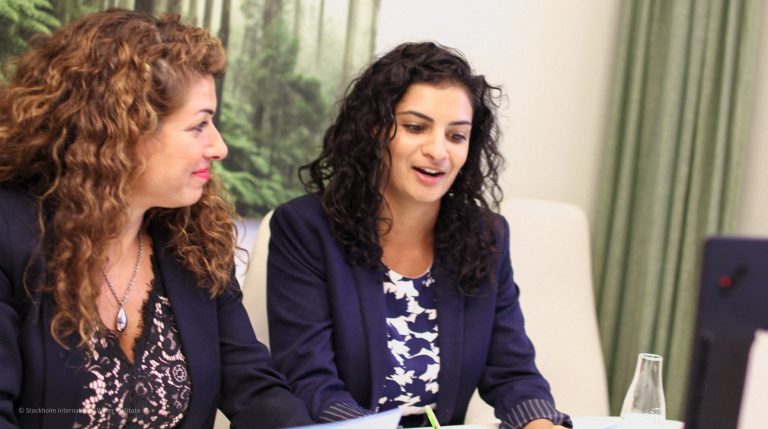World Water Week is the meeting place for everyone who wants to understand how water can help us address the world’s greatest challenges. Started in 1991, this event is now the leading annual conference on global water issues.
World Water Week is held the last week of August every year and was initially part of a public water festival in the Swedish capital, Stockholm.
SIWI is the organizer of World Water Week and curates all the content, but most of the sessions are co-created by leading international organizations. The Week attracts an unusually diverse group of people from more than 130 countries. Here you meet scientists, UN experts, activists, young entrepreneurs, top politicians, students, business representatives, and many others. What they have in common is a strong commitment to addressing major challenges such as the climate crisis, poverty, and biodiversity loss.
Each week has its own thematic scope and the programme is filled with hundreds of sessions covering a broad range of topics. At World Water Week you can explore water aspects of challenges like the climate crisis, food security, energy, and many other topics.
The annual World Water Week conference would not be possible without support from our key collaborating partners including the Scientific Programme Committee, The Royal Swedish Academy of Sciences and the Stockholm Junior Water Prize jury. See all our partners, visit Our Partners page.
There is so much happening during a World Water Week. Here are some examples:
- Sessions. In the programme, you will find hundreds of sessions on topics ranging from agriculture to city planning, innovation, and wastewater treatment. The session formats are very diverse, with workshops, panels, pitches, storytelling events, competitions and much more. While some sessions cater to a broad audience, others are more specialized. Since the session organizers are leading experts in their fields, World Water Week is the place to learn about new trends and follow events as they evolve.
- Networking and collaboration. With participants from more than 130 countries, World Water Week offers unique opportunities to meet people from every corner of the world and learn first-hand about their experiences. World Water Week is designed to be a powerful force for action since people can immediately learn what others are doing and find collaboration partners for new projects.
- Learning. World Water Week is focused on advancing both scientific knowledge and practical know-how. SIWI’s Scientific Programme Committee ensures a high academic quality and hosts seminars. Many other sessions offer scientific water expertise as well as training in specific skills and methods. But ideas also travel fast in the many meetings where people meet others who have the same interest or profession but in another part of the world.
- Awards ceremonies. Both Stockholm Water Prize and Stockholm Junior Water Prize are presented during World Water Week. The Stockholm Water Prize is the most prestigious water award and the presence of the laureate during the Week adds to the shared learning. The Royal Award ceremony with the Swedish King H.M King Carl XVI Gustaf is one World Water Week’s absolute highlights!
The Stockholm Junior Water Prize is an international competition for innovators between 15 and 20 years old. The international winner is announced during the Week by H.R.H Crown Princess Victoria of Sweden.
As the leading conference on water and development issues, World Water Week can play an important role as a meeting-place and knowledge broker. This is achieved in several ways:
- Peer-to-peer learning. By bringing together people with many different backgrounds, new ideas and methods can travel fast. According to our surveys, more than 80 per cent of World Water Week participants take a concrete action as a result of attending the Week.
- Advancing knowledge. World Water Week is a leading meeting-place for experts in emerging fields such as water diplomacy, transboundary water cooperation, and source-to-sea management. The Week offers opportunities to advance this knowledge, exchange experiences and involve new actors.
- Accelerate action. World Water Week is focused on five urgent challenges that water can help us address. With so little time to achieve progress on climate change, biodiversity loss and poverty reduction, more people must learn about smart water-related solutions that solve more than one problem. World Water Week is seen as a hands-on conference where major steps can be taken between more formal international summits.
- Coordinate implementation. Since most major international organizations and many governments are present at the Week, this is a place coordinate action and implementation.
World Water Week is a gigantic meeting-place, where all voices are valued and needed. We welcome participants from across the world and many different backgrounds, beyond the traditional water sector.
Today’s World Water Week has an almost even gender balance among participants and a third of our attendees are under the age of 35. Since 2017, we worked actively to ensure that this diversity is equally reflected in the speaker line-up in our sessions. Most organizers follow our Gold Standard, where at least 40 per cent of presenters are women, at least one is under 35 and the session is designed to be inclusive.
Many organizations convening sessions also work actively to include speakers and perspectives from the Global South. In 2021, this was facilitated by the digital format which made it possible for new groups to attend.
Change will only happen when everyone has a chance to influence water decisions that impact her or him.
Engage
You can now submit session proposals and seminar abstracts for the leading annual event on global water issues.
Learn more and apply



